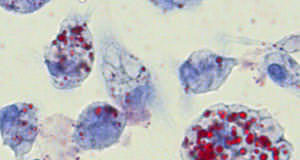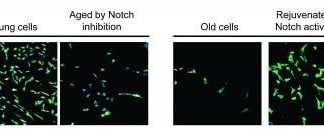Circulating Levels Of A Lung Protein Found To Be ‘Strongly Predictive’...
A blood protein known as surfactant protein-D (SP-D), which is mainly synthesised in the lungs, has been described as "a good predictor" of cardiovascular disease following a large study in North America. Reporting the study online June 8 in the European Heart Journal, the investigators said that circulating SP-D levels were clearly associated with CVD and total mortality in patients with angiographically diagnosed coronary artery disease independent of other well established risk factors (such as age, smoking, cholesterol and C-reactive protein levels).
New Way Of Fighting High Cholesterol Upends Assumptions
Atherosclerosis -- the hardening of arteries that is a primary cause of cardiovascular disease and death -- has long been presumed to be the fateful consequence of complicated interactions between overabundant cholesterol and resulting inflammation in the heart and blood vessels.
Depression Common In People With Chronic Cough
More than half of people with chronic cough-a nagging cough that can last for months or even years-suffer from depressive symptoms, according to a study to be presented at the American Thoracic Society International Conference on May 23. The study of 100 people with chronic cough that had lasted an average of 9 years found that...
Omega Fatty Acid Balance Can Alter Immunity And Gene Expression
For the past century, changes in the Western diet have altered the consumption of omega-6 fatty acids (w6, found in meat and vegetable oils)...
High-Fat Meals A No-No for Asthma Patients, Researchers Find
People with asthma may be well-advised to avoid heavy, high-fat meals, according to new research. Individuals with asthma who consumed a high-fat meal showed increased airway inflammation just hours after the binge...
Are Periodontal Disease And Prostatitis Linked?
Researchers from Case Western Reserve University School of Dental Medicine and University Hospitals Case Medical Center report initial results from a small sample that inflammation from gum disease and prostate problems just might be linked.
Inflammatory Diseases: Scientists Identify Antiviral Defense
Canadian researchers have discovered a new way the body combats respiratory viral infections. In the journal PLoS Pathogens, scientists from the University of Montreal and the University of Montreal Hospital Research Center explain how the NOX2 molecule, an enzyme that...
Scientists Discover Clues To What Makes Human Muscle Age
A study led by researchers at the University of California, Berkeley, has identified critical biochemical pathways linked to the aging of human muscle. By manipulating these pathways, the researchers were able to turn back the clock on old human muscle, restoring its ability to repair and rebuild itself. The findings will be reported in the Sept. 30 issue of the journal EMBO Molecular Medicine, a peer-reviewed, scientific publicationof the European Molecular Biology Organization. "Our study shows that the ability of old human muscle to..."
Patients With Rheumatoid Arthritis Appear To Be At Increased Risk For...
A study that included more than 45,000 residents of Sweden with rheumatoid arthritis finds that individuals with this disease had an associated higher risk of venous thromboembolism (a blood clot that forms within a vein), and that this elevated risk was stable for 10 years after the time of diagnosis, according to a study in the October 3 issue of JAMA.
Research Shows Low Vitamin D Levels Raise Risk of Heart Disease...
Low levels of vitamin D are known to nearly double the risk of cardiovascular disease in patients with diabetes, and researchers at Washington University School of Medicine in St. Louis now think they know why. They have found that diabetics deficient in vitamin D can’t process cholesterol normally, so it builds up in their blood vessels, ...
Role Of Fungus In Digestive Disorders Explored
Cedars-Sinai researchers say their examination of the fungi in the intestines suggests an important link between these microbes and inflammatory diseases such as ulcerative colitis.In the new study, published in the June 8 issue of Science, researchers at Cedars-Sinai's Inflammatory Bowel and Immunobiology Research Institute identified and characterized the large community of fungi inhabiting the large intestine in a model of the disease.
Both Major Theories About Human Cellular Aging Supported By New Research
Aging yeast cells accumulate damage over time, but they do so by following a pattern laid down earlier in their life by diet as well as the genes that control metabolism and the dynamics of cell structures such as mitochondria, the power plants of cells. These research findings, presented at the American Society for Cell Biology ...















